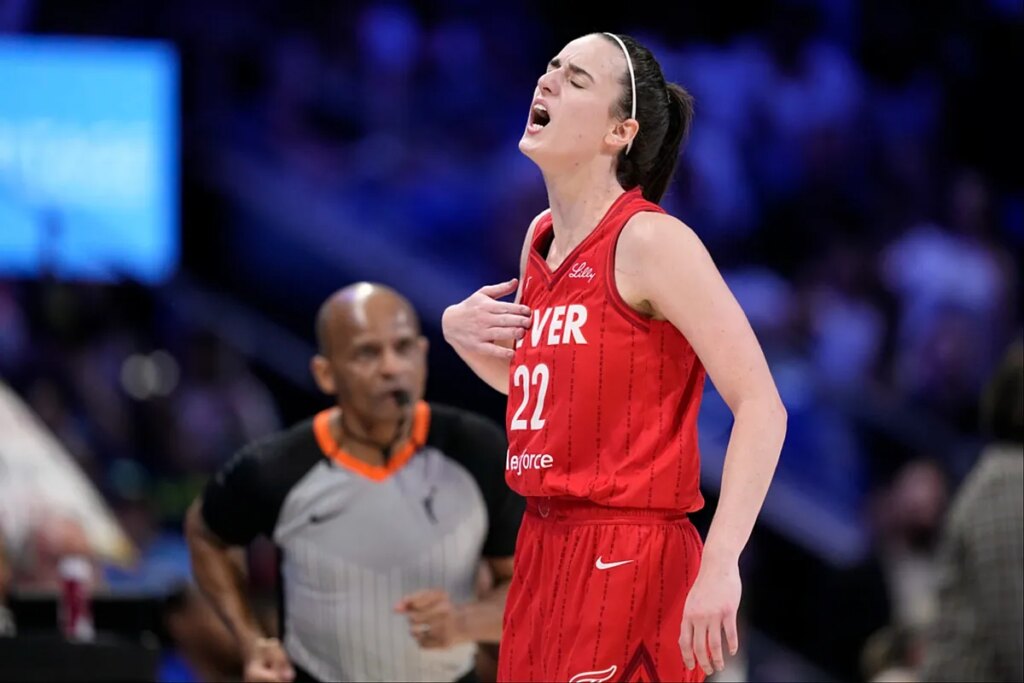College sports in the US are undergoing significant transformations, and not everyone is prepared for these changes. Despite being one of the first to benefit from the new NIL (Name, Image, Likeness) policies and the transfer portal, Caitlin Clark remains unconvinced about the direction student sports are taking.
There is no doubt that the Indiana Fever guard represents a turning point in not only basketball but women’s sports in general. The same charisma that fills stadiums and breaks audience records every other day has earned her lucrative sponsorships since her time as a student-athlete.
Clark herself admits that the implementation of NIL policies has benefited college athletes, but she remains skeptical about the advantages of the transfer portal. In her recent visit to the “New Heights” podcast with Jason and Travis Kelce, Clark shared her most candid opinion on the matter.
The end of college amateurism?
“The transfer portal is crazy, especially in football,” Clark told the Kelce brothers in their chat a few days ago. Furthermore, the WNBA star expressed her dissatisfaction with the change. “It’s kind of sad. You lose a little of that amateurism of college sports… but also, it’s the world we’re living in.”
The former Iowa Hawkeyes star is not the only one questioning the consequences of the new transfer portal. Media, fans, and analysts view the chaotic movement this system has brought to all sports with skepticism.
Others argue that the modifications to the system grant student-athletes a fundamental freedom that their classmates enjoy. Previously, college athletes needed permission from their coaches to talk to other programs, making a transfer nearly impossible. The new system grants them that right.
Comparisons between NIL and transfer portal
Clark herself acknowledged that NIL represents a fundamental freedom for every student, including athletes. “The NIL part of it-like the true endorsements, like you’re doing a commercial for the local coffee shop-it’s so easy and so simple. A normal student can do it, but why couldn’t an athlete?”
These two changes have sparked a revolution. Critics warn it could spell the end of college sports, while defenders say athletes have already begun to see the benefits, with the popularity of sports not diminishing. Only time will tell who is right.
Read the full article here

